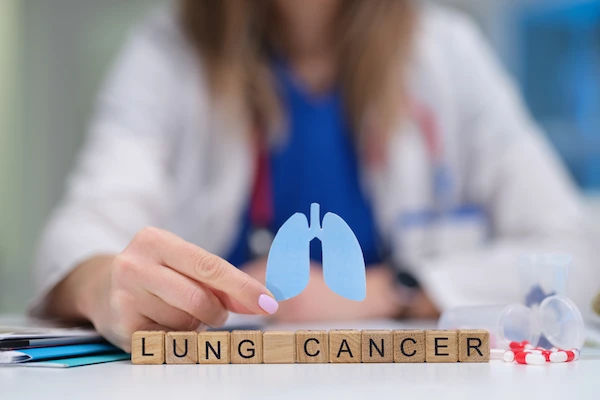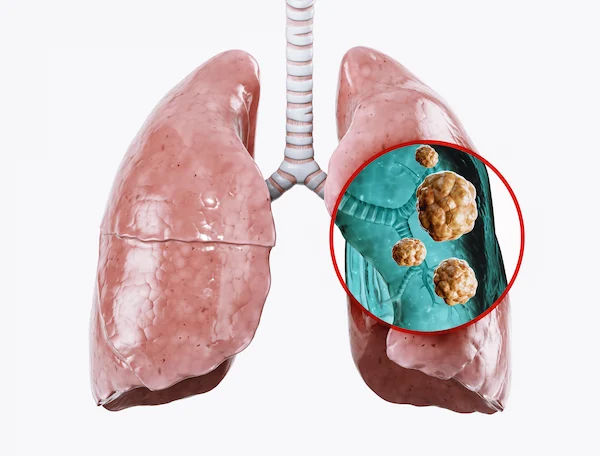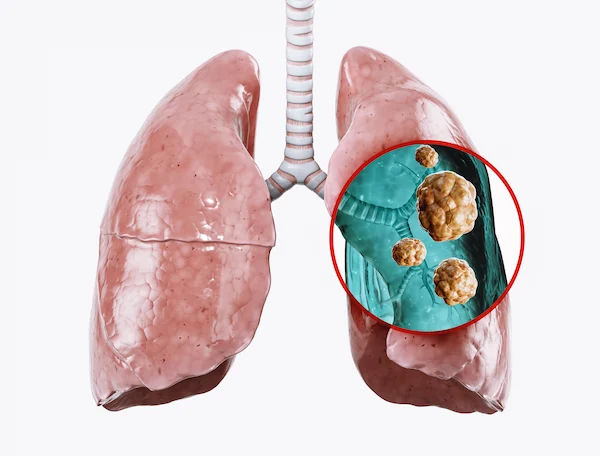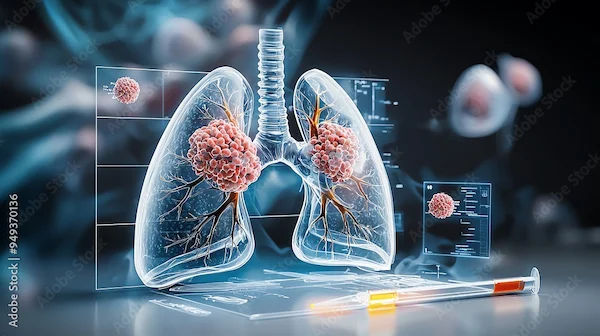Causes of Lung Cancer in Non-Smokers
Lung cancer in non-smokers is more common than you think. Learn the key causes—like secondhand smoke, radon, and genetic mutations—and how to reduce your risk with expert advice.


Lung cancer is often associated with smoking, but did you know that non-smokers can also develop this disease? In fact, about 10-20% of lung cancer cases occur in people who have never smoked. If you or a loved one has been affected by lung cancer despite never smoking, it’s natural to wonder why this happened.
This article will help you understand the possible causes, risk factors, and ways to protect yourself.
Why Do Non-Smokers Get Lung Cancer?
Lung cancer in non-smokers can occur due to various environmental, genetic, and lifestyle factors. Here are some of the most common causes:
1. Secondhand Smoke (Passive Smoking)
Even if you don’t smoke, being around smokers increases your risk. Breathing in secondhand smoke at home, work, or public places exposes you to harmful chemicals that can damage lung cells over time.
2. Radon Gas Exposure
Radon is a naturally occurring radioactive gas found in soil, rocks, and some building materials. It can seep into homes, especially in poorly ventilated basements. Long-term exposure is a leading cause of lung cancer in non-smokers.
3. Air Pollution
Breathing polluted air—from vehicle exhaust, industrial emissions, or burning fuels—can increase lung cancer risk. Tiny particles in polluted air (like PM2.5) can lodge deep in the lungs and cause damage.
4. Workplace Hazards
Certain jobs expose workers to harmful substances like:
- Asbestos (common in construction and shipbuilding)
- Arsenic (found in some pesticides and contaminated water)
- Diesel exhaust (affects truck drivers and miners)
- Silica dust (from mining and construction work)
5. Genetic Factors
Some people inherit gene mutations (like EGFR or ALK mutations) that make them more prone to lung cancer, even without smoking. Family history can play a role.
Consult Top Specialists
6. Previous Lung Diseases
Chronic lung conditions like COPD, tuberculosis, or pulmonary fibrosis can increase the risk of lung cancer due to long-term inflammation and scarring.
7. Hormonal Factors (Especially in Women)
Some studies suggest that estrogen may influence lung cancer development in non-smoking women, though more research is needed.
How Does Lung Cancer Affect Non-Smokers Differently?
Non-smokers with lung cancer often develop adenocarcinoma, a type that grows in the outer parts of the lungs.
They may have specific gene mutations (like EGFR, ALK, or ROS1) that respond well to targeted therapies.
Symptoms can be similar to those in smokers, including:
- Persistent cough
- Shortness of breath
- Chest pain
- Unexplained weight loss
- Coughing up blood
Since lung cancer in non-smokers is less expected, diagnosis may be delayed. If you have persistent symptoms, consult a doctor.
How Can You Reduce Your Risk?
While not all cases are preventable, you can take steps to lower your risk:
- Test Your Home for Radon – Radon test kits are available to check indoor air quality.
- Avoid Secondhand Smoke – Stay away from smoking areas and encourage smokers to quit.
- Limit Air Pollution Exposure – Use air purifiers, wear masks in highly polluted areas, and avoid outdoor exercise on bad air days.
- Protect Yourself at Work – If your job involves hazardous chemicals, use protective gear and follow safety guidelines.
- Eat a Healthy Diet – Antioxidant-rich foods (fruits, vegetables, nuts) may help protect lung health.
- Exercise Regularly – Physical activity improves lung function and overall immunity.
When Should You See a Doctor?
If you experience:
- A cough that doesn’t go away
- Chest pain that worsens with deep breathing
- Unexplained weight loss or fatigue
- Shortness of breath
…don’t ignore these signs. Early detection improves treatment success.
Get Screened or Consult a Specialist
If you have risk factors (like radon exposure or family history), talk to a doctor about low-dose CT scans, which can detect lung cancer early.
Apollo 24|7 offers expert consultations and diagnostic tests. You can book an appointment easily through the app or website.
Final Thoughts
Lung cancer in non-smokers is a reality, but understanding the causes can help you take preventive steps. If you or someone you know is at risk, staying informed and getting regular check-ups can make a big difference.
Remember, early detection saves lives. Stay aware, take precautions, and consult a doctor if you have concerns.
Consult Top Specialists
Consult Top Specialists
Dr. Gaddam Manoj
General Practitioner
1 Years • MBBS
Hyderabad
Aaradhya clinic, Hyderabad

Dr Suseela
General Physician
5 Years • MBBS
Bengaluru
Apollo Medical Center, Marathahalli, Bengaluru
Dr. Sahana B
General Practitioner
3 Years • MBBS
Koppal
Khushi multi-speciality hospital, Koppal
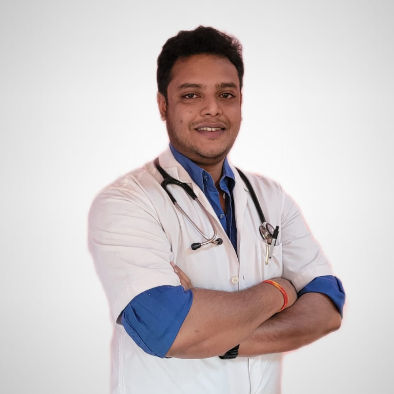
Dr. Mainak Baksi
General Practitioner
13 Years • MBBS , MD (MPH)
Howrah
Mainak Baksi Clinic, Howrah
(50+ Patients)
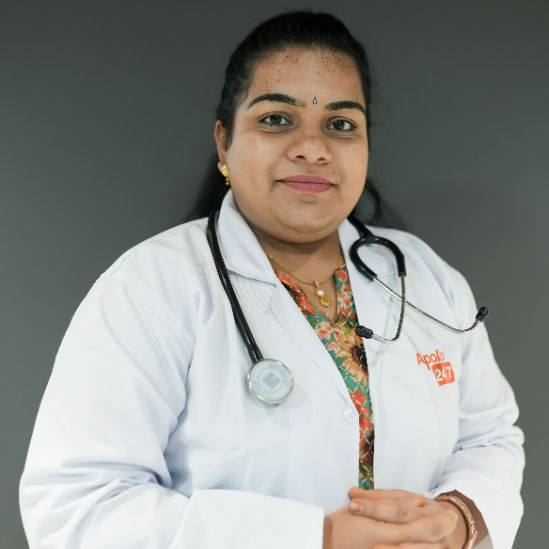
Dr. Siri Nallapu
General Practitioner
5 Years • MBBS
Hyderabad
Apollo 24|7 Clinic, Hyderabad
Consult Top Specialists
Dr. Gaddam Manoj
General Practitioner
1 Years • MBBS
Hyderabad
Aaradhya clinic, Hyderabad

Dr Suseela
General Physician
5 Years • MBBS
Bengaluru
Apollo Medical Center, Marathahalli, Bengaluru
Dr. Sahana B
General Practitioner
3 Years • MBBS
Koppal
Khushi multi-speciality hospital, Koppal

Dr. Mainak Baksi
General Practitioner
13 Years • MBBS , MD (MPH)
Howrah
Mainak Baksi Clinic, Howrah
(50+ Patients)

Dr. Siri Nallapu
General Practitioner
5 Years • MBBS
Hyderabad
Apollo 24|7 Clinic, Hyderabad
